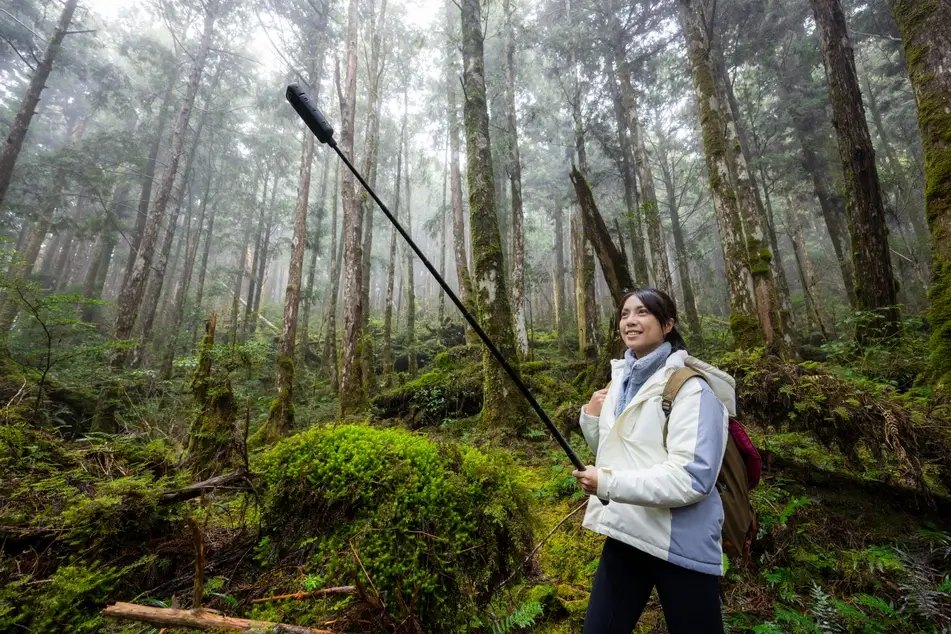How to Land Your Dream Environmental Job

Whether you are an engineer, a community organizer, or a policy wonk, it's likely that there is a job that's a fit for you in the environmental sector. It is one of the fastest growing areas of employment, with many jobs at nonprofits, government agencies, NGOs, and even progressive corporations or consulting firms.
If you are passionate about sustainability, climate change, or clean air and water, read on for tips about how to narrow and focus the job search to land your dream environmental job.
Applying your skills
The first step in finding your dream environmental job is to narrow your focus, says Lisa Yee-Litzenberg, a career coach and founder of Green Career Advisor, an organization working with students and graduates looking for environmental jobs.
“So many people are passionate and know they want to make a difference,” she says. “Think about what you really want to focus on, based on what you are passionate about and the skills that you have. From there you can narrow it down.”
Yee-Litzenberg, along with fellow environmental career coach Kevin Doyle, have both been advising students, graduates, and universities about jobs in the environmental industry for years. They recently put together a list of some of the top trends they expect to see in eco jobs this year.:
- Community organizers: If you want to make a difference in a local community, whether it is educating people about air pollution or cleaning up a local lake or stream, community organizing could be for you.
- Lawyers and policy analysts: Local, state, and federal government agencies, nonprofits, NGOs, academic institutions, and progressive energy companies are often hiring policy advisors and attorneys. There is also an emerging field of conflict mediators who help people make decisions about environmental problems.
- Scientists: Jobs in environmental science and environmental engineering are both growing at a faster than average rate, according to the U.S. Department of Labor. Look for jobs with federal agencies and local and state governments, as well as nonprofits and academic institutions.
- Urban planners: Folks with a background in city planning might have good luck getting hired by cities that are developing plans for addressing climate change.
- Fundraisers: As nonprofits face more and more funding cuts, the need for development professionals is increasing. If you have experience with grant writing or seeking corporate sponsorship for capital projects, you could be in high demand.
- Business leaders: If you are transitioning from the corporate world, try looking for a job with an NGO that works with companies on sustainability issues.
- Activists: Lobbyists, campaign managers, and social media experts are all in demand at nonprofit organizations nationwide.
In-demand environmental issue areas
Once you've pinpointed the skills that you have to offer, your next step is to determine what area of environmental work you are most passionate about. There are jobs working to improve the climate in many ways, from working with cleantech solutions to land conservation.
According to Yee-Litzenberg and Doyle, the areas of clean water and sustainability currently have a ton of potential for career growth:
Clean water
Jobs working on water conservation, building better infrastructure for waste water, and access to clean and safe drinking water are some of the most prevalent right now, Doyle says.
Anna Azarjew, Community Manager at charity: water, uses her skills in volunteer management to contribute to the cause. charity: water works to provide access to clean and safe drinking water in developing countries by raising awareness and funds. Though Anna says charity: water considers itself to be more humanitarian than environmental, there is no denying the impact that clean drinking water has on land use, public health, and addressing climate change.
The organization employs more than 70 people in its New York City office, and the skills the employees have are incredibly diverse. There are folks with experience in engineering, finance, data science, public health, emergency response management, information technology, and web design. There are people like Anna, who work with volunteers or donors. And there are people who help tell the charity: water story: from videographers to photographers to writers to social media experts.
“Students ask me what they should study [if they want to do this kind of work],” Anna says. “And I tell them they should study what they want, because there are so many important jobs out there.”
Sustainability
Jobs working toward both sustainable food and sustainable energy are growing, Doyle and Yee-Litzenberg say.
There are 2.5 million jobs working toward clean energy and energy efficiency, and Doyle and Yee-Litzenberg expect that number to grow. Nonprofit organizations, progressive energy companies, and government agencies are hiring policy analysts, community organizers, lawyers, business leaders, and scientists to help address the need for more sustainable energy practices like solar, wind, and bio-fuel.
Molly Costigan is a program manager at the Sustainable Food Center in Austin, TX. She runs the organization’s Happy Kitchen program, which teaches people how to cook healthy meals using local food. Anyone can take a community cooking class, but free classes are offered in low income neighborhoods and communities with a high risk of diet-related diseases.
Molly studied Spanish in college and found her job because she was looking to use Spanish while working with a local community. She started as an AmeriCorps Vista and was then hired by the organization.
Her advice for those who want to work for the environment at a nonprofit is to look into AmeriCorps Vista. If you have the means, she says, it is a great way to get your foot in the door.
How to find your dream environmental job
If you’re still in school, Yee-Litzenberg and Doyle say, one of the most important things you can do is get real world experience through internships or class projects. When looking at graduate schools, make sure the program you are interested in has a project component where you can work with an outside organization to solve an environmental problem.
They also suggest looking at dual-degree programs to make yourself more marketable; a great strategy is to combine an environmental sciences, engineering, or other technical degree with something that focuses on the human side, such as business, psychology, sociology, or public administration.
Like any other field, networking will help you get where you want to be. Try to meet people who work at organizations you are interested in, or use social media to learn more about potential organizations. Check out Idealist’s job postings to see the diversity of jobs available.
If you want to work for a federal government agency, look into some of the preferential hiring programs. There’s a special track for recent graduates and if you’ve served in the military or Peace Corps you may have a better chance of getting hired.
This post was contributed by a guest author.






